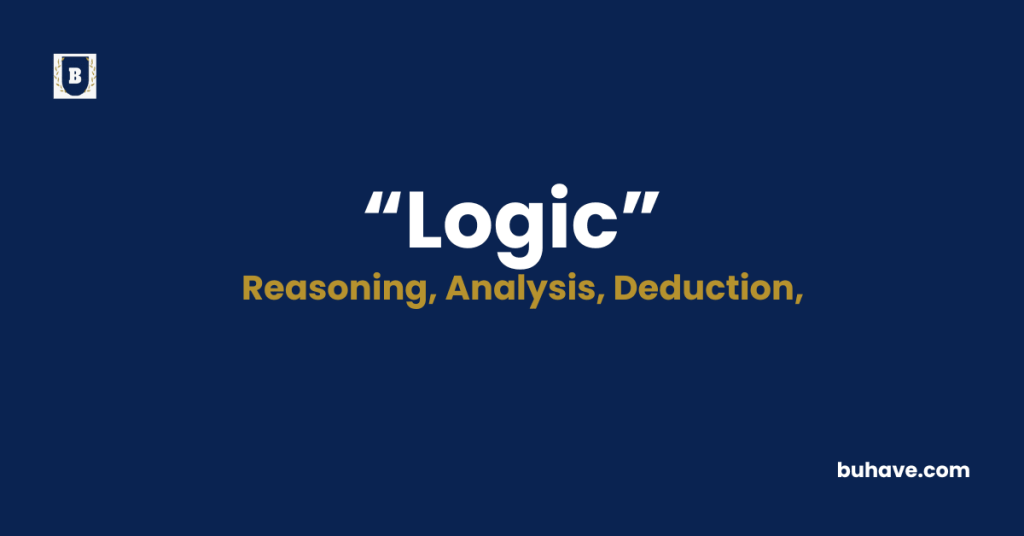The word Logic (noun) refers to a system of reasoning or the principles of valid thought used to arrive at sound conclusions. In this guide, you’ll learn the full definition, synonyms, antonyms, etymology, and real-life examples of how to use Logic correctly in sentences.
Logic Explained in Depth
A complete and detailed guide to the word Logic including meaning, definition, examples, etymology, synonyms, and antonyms.
Meanings of Logic
Logic means the discipline or process of reasoning in a clear, structured, and rational manner. It helps evaluate arguments, identify fallacies, and establish valid conclusions. In everyday use, it refers to using common sense, facts, and clear thinking to make decisions or solve problems.
Definition
Logic is defined as the science of correct reasoning and the systematic use of principles to distinguish valid arguments from invalid ones. It is a foundational concept in philosophy, mathematics, and computer science, but it also plays a vital role in daily life. Logical thinking enables people to solve problems, assess claims, and make reasoned judgments by following consistent rules. In conversation, a person might say, “That doesn’t follow any logic,” to point out a contradiction or fallacy. Formal logic includes deductive reasoning (where conclusions follow necessarily from premises) and inductive reasoning (drawing probable conclusions based on evidence). Informally, logic refers to using facts and coherence to guide actions or beliefs. Logic is central to effective communication, analytical thinking, and decision-making in both academic and real-world settings.
Etymology
The word logic comes from the Greek word logikē, which is derived from logos, meaning “word,” “speech,” “reason,” or “discourse.” It entered Latin as logica and was adopted into English in the late Middle Ages. In ancient Greece, logic was formalized by philosophers like Aristotle, who developed syllogistic reasoning to evaluate truth and validity.
In the Middle Ages, logic became a central subject of scholarly study in universities. During the Enlightenment and into the modern era, logic evolved further to include symbolic and mathematical forms used in computing and formal systems. Today, logic is a fundamental part of academic disciplines, programming, legal reasoning, and everyday decision-making, where clarity and consistency are essential.
Example Sentences
- His logic was sound, and he presented his case with convincing arguments.
- Learning logic helps students think more critically and solve problems effectively.
- Their decision lacked basic logic and ended up causing more confusion.
Logic Synonyms
- Reasoning
- Rationality
- Sense
- Sound judgment
- Intellect
- Coherence
- Deduction
- Argumentation
- Inference
- Analysis
Logic Antonyms
- Illogic
- Irrationality
- Fallacy
- Nonsense
- Absurdity
- Confusion
- Contradiction
- Emotionalism
- Imbalance
- Chaos
FAQs about Logic
Here are some frequently asked questions (FAQs) about the word “Logic”
1. What does “logic” mean?
It means the process or principles of reasoning used to form valid conclusions or sound judgments.
2. Why is logic important?
Logic helps in decision-making, problem-solving, critical thinking, and evaluating the truth or consistency of statements.
3. What is the difference between logic and reasoning?
Logic is a system of rules for reasoning, while reasoning is the broader mental process of forming conclusions or inferences.
4. Can logic be emotional?
Logic itself is not emotional; it relies on facts and structure. However, emotions can influence how logic is applied or interpreted.

















